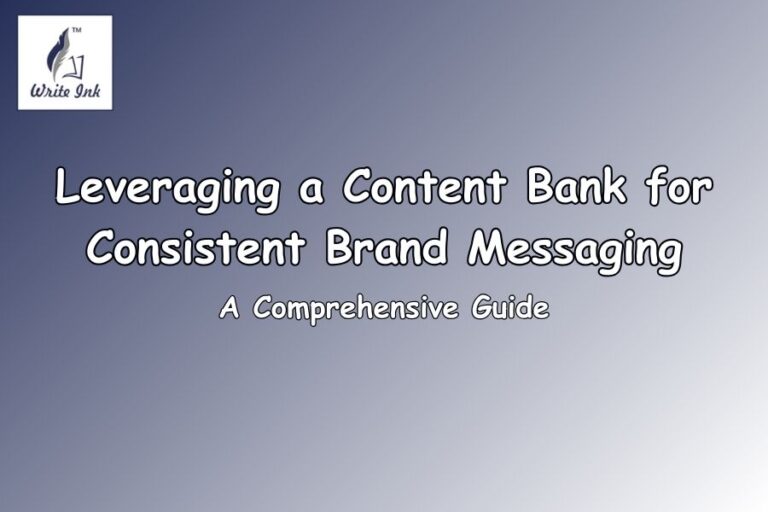What is SEO Content and How Does It Work?

As the world becomes increasingly digital, having a strong online presence is crucial for your business, big or small. One of the most effective ways to boost your online visibility and attract more customers is through Search Engine Optimisation (SEO). SEO is the practice of optimising or enhancing your digital content to increase its visibility and ranking in search engines. Whether it’s through using SEO content checklists or utilising SEO content templates, there are a variety of ways to optimise content for search engines. SEO includes anything from website text and images to videos and blogs. It essentially means creating your content in such a manner that makes it easier for the internet crawlers to identify what your website is about and direct the right kind of audience your way. By using SEO writing techniques, you can improve your online presence and attract more relevant traffic to your websites. Some basic SEO content strategies include keyword research, on-page optimisation, link building, and content creation. Without proper SEO, businesses and websites struggle to attract customers looking for them, which leads to missed opportunities and loss of business. SEO content rewriters play an important role in creating content that is SEO friendly and free of plagiarism so that your content resonates with your target audiences and you can attract the right kind of audience to expand your business and achieve your goals.
SEO content is a critical component of any successful SEO strategy. In this article, we explain what SEO content is, why it’s essential for your business, and how to create it effectively. Recent years have seen drastic changes in the way SEO is used and treated for optimising content across different social media platforms and the web.
The Importance of SEO Content for Your Business

High-quality SEO content is crucial for businesses seeking to boost their online visibility and attract more customers. It refers to website content that is optimised or designed to rank higher in Search Engine Results Pages (SERPs) for specific keywords. When your content is optimised, it can drive targeted traffic to your website, attracting potential customers who are already interested in your offerings. Additionally, SEO content can position your business as an authority in your industry by answering customers’ questions and building trust. With high-quality SEO content, your business can improve its online reputation and drive more conversions. SEO content should not just give information about your products but also provide value to your customers so that they develop trust and belief in you and your products and services.
Keywords are the foundational elements of SEO. They are simply words or phrases used to describe the content of a webpage and are used by search engines to help match user queries with relevant content. Proper use of keywords in webpage content, page titles, and meta descriptions can help improve a website’s search engine ranking and increase visibility to potential visitors. It’s important to choose relevant and specific keywords that reflect the content of the page and match popular search queries. If your website is not optimised for SEO content and you do not use appropriate SEO content, then it becomes very difficult for search engines to identify what your website is about. SEO-optimised websites rank higher on search engines and attract significantly larger volumes of traffic and business.

Keywords play a significant role in Search Engine Optimisation. SEO is all about making sure that your website ranks high on search engine results pages (SERPs) for relevant queries. One of the primary ways search engines determine the relevance of a website is by analysing the keywords used on that website. Let us first understand the relevance of keywords in SEO and how they impact your website’s visibility and traffic.
Keywords are crucial to SEO because they help search engines understand what your website is about. If your website uses relevant keywords, search engines are more likely to show your website in the search results when someone types in a related query. On the other hand, if your website doesn’t use relevant keywords, search engines may not rank it higher in the search results, which can lead to lower visibility and traffic. The ultimate goal of any website is to attract potential customers, and a lack of keywords for your industry makes it difficult for search engines to find and list your website and, in turn, for your potential customers to find you. There are a number of excellent tools and resources available to find the right keywords for your product or service.
However, it’s important to note that using too many keywords can have a negative impact on your SEO. The practice of using too many keywords is known as “keyword stuffing,” and search engines consider it a black hat SEO tactic. This means that search engines will penalise websites that use too many keywords that are out of context and unnecessary, which harms your website’s ranking and visibility. Therefore, it’s crucial to use keywords naturally and strategically in your content.

Though keywords are a very important aspect of SEO, there are various other important things that an effective SEO content checklist should include. These are
- Voice Search: This is becoming increasingly popular with the rise of virtual assistants like Siri and Alexa. To optimise for this, you need to use conversational language and long-tail keywords that people might use when speaking. You also need to structure your content in a way that answers questions directly, as this is what virtual assistants look for.
- Mobile SEO is crucial as more and more people are using their mobile devices to access the internet. To optimise for mobile SEO, you need to ensure that your website is mobile-friendly. Make sure to include a responsive design on your website and optimise the page speed to make browsing your website on a mobile device a seamless experience. This will ensure that your users have a great experience, regardless of the device they are using.
- Long-form SEO is an important aspect of SEO strategy. This type of content is typically longer than 1,500 words and allows for more in-depth coverage of a topic. It demonstrates your expertise on the topic and increases user engagement and time spent on the site. It also provides more opportunities to include relevant keywords and backlinks in the SEO content.
- Local SEO is important if you have a local business. This involves optimising your website for local searches by creating location-specific content, optimising your Google My Business profile, and building local citations. This will help local customers find your business when they search for relevant products or services in their area and increase traffic.
- User intent is crucial for creating content that matches the user’s needs and expectations. This involves analysing the types of searches that are being made and creating content that satisfies those needs. This will ensure that your users are more likely to engage with your content and share it with others.
How to Find the Right Keywords for Your SEO Content

Keyword research is a critical part of creating effective SEO content. Without the right keywords, your content won’t rank as high in SERPs, and you won’t attract as much traffic to your website. Here are some tips for finding the right keywords for your SEO content:
- Identify your core topics: It simply means that you need to identify what you want to be found for. Start by identifying the topics that are most relevant to your business. This could include the products or services you offer, as well as any other topics related to your industry.
- Use keyword research tools: Though there are many keyword research tools available, the most popular ones are UberSuggest, Ahrefs, and SEMrush. These tools help you find the best keywords specific to your industry that will allow you to efficiently target your audience with your SEO content. These tools allow you to see how often specific keywords are searched for, how difficult they are to rank for and get appropriate suggestions for related keywords.
- Analyse your competitors: Take a look at the content your competitors are creating and see what keywords they are targeting. This can give you insights into which keywords are most valuable for your industry. Proper analysis helps you identify emerging trends and create SEO-optimised content that is both relevant and engaging.
Remember to add keywords in all relevant places, such as the website’s title, headings, subheadings, body and meta description for the best results.
The Top Tools for Keyword Research in 2023

Keyword research tools are an essential part of any SEO strategy. Here are some of the top tools to consider for keyword research in 2023:
- Ubersuggest: Ubersuggest is one of the most popular SEO tools on the market and has powerful keyword research features. It provides detailed traffic analysis and identifies the top pages on your website to monitor and improve your SEO performance.
- Ahrefs: Ahrefs is an all-in-one SEO tool that includes a powerful keyword research feature. With Ahrefs, you can find the best keywords to target for your SEO content and analyse your competitors’ keyword strategies.
- SEMrush: SEMrush is another popular SEO tool that offers a suite of features for keyword research. With SEMrush, you can find the best keywords to target, analyse your competitors’ keyword strategies, and track the keyword rankings of your website.
- Google Keyword Planner: Google Keyword Planner is a free tool that allows you to find the best keywords to target for your SEO content. With the Keyword Planner, you can see how often specific keywords are searched for and get suggestions for related keywords.
Best Practises for On-Page SEO Content Optimisation

Once you’ve identified the keywords to target for your SEO content, it’s essential to optimise your content for those keywords. Here are some best practices for on-page SEO content optimisation:
- Use keywords in your page title: Including your target keywords in your page title can help search engines understand what your content is about and improve your chances of ranking higher in SERPs.
- Write high-quality content: It’s essential to create high-quality, informative content that provides value to your audience. Your content should be well-written, easy to read, and free of spelling and grammatical errors.
- Use header tags: Header tags have been around for years, but it is still surprising how many websites do not use them while designing their websites. Using header tags (H1, H2, H3) can help to organise your content and make it easier for readers to navigate. Including your target keywords in your header tags is also a great hack to improve your chances of ranking higher in SERPs.
- Optimise your images: Optimising your images with alt tags and descriptive filenames can help search engines understand what your content is about and improve your chances of ranking higher in image search results. Make sure that the images on your website are optimised for SEO and have appropriate file names and descriptions.
- Sitemap and Internal Linking: If you have a large website with many pages, it is important to create and provide a sitemap. A sitemap helps internet crawlers correctly index your pages and identify the changes made to your website. For smaller websites, internal linking of your web pages to each other and other relevant pages is a good idea. It helps search engines understand the structure of your website and improve your chances of ranking higher in SERPs.
- Improve your website speed: Website speed is a crucial factor in SEO. Slow-loading websites can hurt your search engine rankings and lead to a poor user experience. Optimising your website’s speed can help improve your SEO and keep your visitors engaged.
SEO content is a critical component of any successful SEO strategy. By creating high-quality, informative content that is optimised for specific keywords, you can improve your online visibility, attract more customers, and establish your business as an authority in your industry. To create effective SEO content, it’s essential to find the right keywords, use the right tools, and follow best practices for on-page optimization. With the right approach, you can create SEO content that drives targeted traffic to your website and helps your business grow. Get in touch with us to create SEO-optimised content for your websites that will enhance user engagement and drive more traffic.
Image Reference: Freepik







